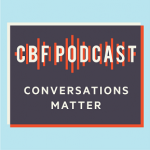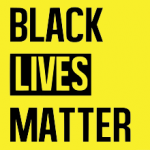By J. Claude Huguley
America is divided. Some Americans are incensed that would-be immigrants are captured at the border, prosecuted as criminals and separated from their children. Some Americans are enraged that would-be immigrants would defy our laws, deceive our border patrols and sneak into our country illegally. The former group asks, “Are we not a nation of compassion?” The latter group retorts, “Are we not a nation of laws?”
Demonizing the other side does little to change the opinion of anyone. It solidifies each side’s judgment of the rightness of their cause. Everyone feels justifiably angry but nothing changes. Each person’s hurt remains and the fruitless cycle of hurtfulness continues. In contrast, seeing the vulnerable humanity in the other—humanizing—makes real change possible.
In the 10th chapter of the biblical Gospel of Luke, an expert in the Hebrew Law comes to test Jesus with a question, “What must I do to inherit eternal life?” Following Jesus’ prompt, the man answers his own question by quoting from the Law the words, “’Love the Lord your God with all your heart and with all your soul and with all your strength and with all your mind’, and ‘Love your neighbor as yourself.’” According to Jesus, this expert was correct. Loving God and loving neighbor were essential to living life in all its fullness.
As those who appeal to law are apt to do, this expert sought to use the Law to justify his own actions. His follow-up question to Jesus, “Who is my neighbor?” was his attempt to narrow the definition of neighbor into terms he could meet. Surely his neighbor was someone like him, believing and looking like him—someone with whom he could share mutual respect. This is the kind of neighbor he was willing to love and believed he already loved.
Jesus answered the “Who is my neighbor?” question with the familiar story of the Good Samaritan. In the story, a robber gang exploits a traveler and leaves him beaten, bloodied and vulnerable on the side of the road. Two different religious authorities see the man but pass by, doing nothing; their fears and personal requirements overshadowed his need. Finally, a third man comes by, sees the vulnerable man, feels compassion, bandages his wounds, and helps him find a place of safety. This unexpected rescuer is a Samaritan—wrong race, wrong culture, wrong religion, but right heart and right action.
Jesus’ story and application both broaden the definition of neighbor and show how to live out love for neighbor. Neighborhood—this broadening circle of loved neighbors—includes everyone and excludes no one from its list of potential recipients. Loving neighbor is seeing that individual person in their need, joining with them in their challenge, and making available personal resources to meet their needs and restore them to the wider community (neighborhood). Jesus summed up the lessons of the story with the words, “Go and do likewise.”
Who is my neighbor that I am to love as myself?
My neighbor is the one who feels left behind in a changing world. Hopes of economic opportunity, upward mobility and a more secure and better life have been snatched away by the negative effects of technological advance and globalization. Despite hard work and loyalty to the institutions of society and the workplace, this neighbor feels the loss of income stability and a growing insecurity about their place in a world of ever more diverse religion, culture and values. A changed and changing world threatens to the core and creates both a longing for an idealized time from the past and an impassioned resistance against anyone who might personify the changing and threatening world.
My neighbor is also the one who dreams of a changing world where diversity makes possible new ideas, new collaborations and new solutions that could benefit everyone. This neighbor envisions a world committed to freedom, equality and justice for all. When these values are threatened by dehumanizing prejudice, injustice and abuses of power, this neighbor feels the threat personally and stands with the less powerful to create change and move those ideals closer to reality. Fear of returning to a world of greater injustice threatens to the core and energizes an impassioned resistance against any who might personify this unwelcome change.
My neighbor is also the would-be immigrant who dreams of a changing world where hopes of economic opportunity, upward mobility and a more secure and better life can be found in America. Struggling to survive and threatened at home by the violence of robber gangs, government corruption and economic injustice, this neighbor courageously risks everything in hopes of building a better life for themselves and their children.
My neighbor is also the one reading this article who, like me, struggles with this command to “love my neighbor as myself.” Looking away and avoiding the choice to love my neighbor is easier. If I truly see and feel the concerns of my neighbors, my own fears and areas of vulnerability get exposed. Have I not had moments when I felt overwhelmed and unmoored by the pace and breadth of change around me? Have I not had moments when my dreams of a better world have been shattered and I desperately searched for solutions? Have I not had moments when I was so worried about my loved ones that I would do anything to protect them? Like all my neighbors, I am vulnerable and afraid as I passionately seek a safer world for my loved ones and myself. I also need love, compassion and healing community. Different races, different cultures, different religions, different political persuasions—whatever the difference—in the vulnerability of our humanness we are more the same than different.
If I truly see and feel the concerns of my neighbors, I change. I see with less judging and respond with more grace. I become more loving toward each neighbor and the world becomes less divided and safer for us all. May it be so.
Claude Huguley is a CBF hospital chaplain in Nashville, Tennessee. His book, “Transforming FEAR with LOVE: Trusting the Gift of Grace” is available at Amazon.
Note: The views expressed here in columns and commentaries are solely those of the authors.
Interested in writing for CBF at Patheos? Submit your column idea to CBF Communications Director Aaron Weaver at [email protected].










